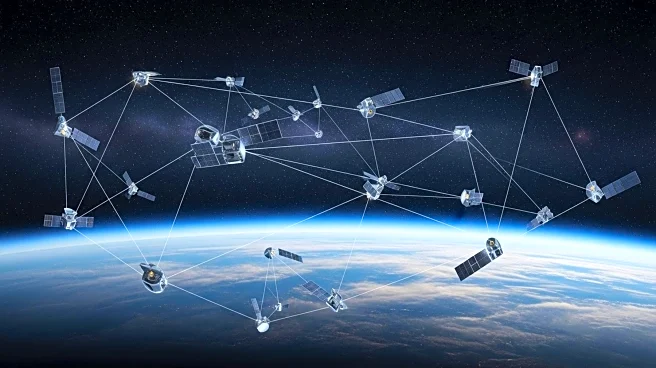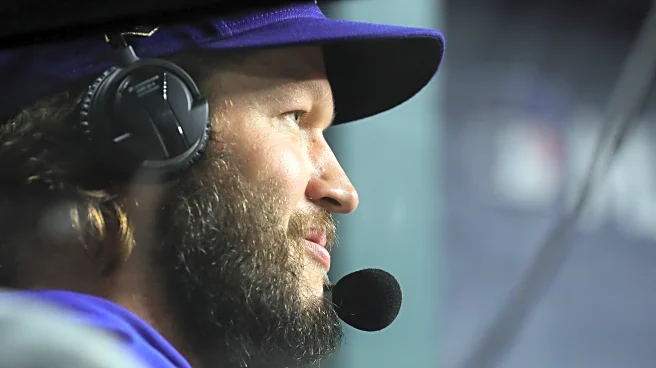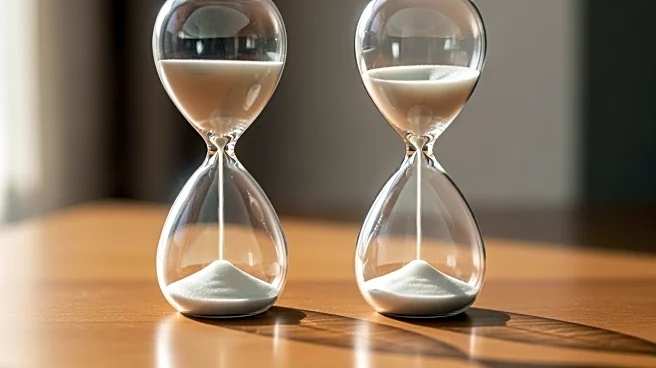What is the story about?
What's Happening?
Elon Musk's Starlink satellites are reportedly falling back to Earth, raising concerns about the Kessler syndrome. Starlink, a network of thousands of small satellites, provides global internet coverage. However, space trackers have recorded up to four satellites deorbiting daily, with debris landing in California. The Kessler syndrome, theorized by NASA scientists, warns of a chain reaction of collisions in space due to overcrowding, potentially making low Earth orbit uninhabitable for new satellites. Musk plans to increase the number of Starlink satellites to 40,000, which could exacerbate the issue.
Why It's Important?
The potential realization of the Kessler syndrome could have catastrophic implications for satellite operations, affecting essential services like internet connectivity, crop production, and international travel. The increase in space debris poses safety risks and could hinder future satellite launches. As Starlink satellites continue to deorbit, the risk of collisions and debris accumulation grows, threatening the sustainability of space activities and technological advancements reliant on satellite infrastructure.
What's Next?
The growing concerns over space debris may lead to increased regulatory scrutiny and international cooperation to address the risks associated with satellite overcrowding. Space agencies and companies might invest in technologies to mitigate debris and develop strategies for sustainable satellite deployment. The situation could prompt discussions on space traffic management and the establishment of guidelines to prevent the Kessler syndrome.
Beyond the Headlines
The issue highlights the ethical and environmental challenges of space exploration and commercialization. It raises questions about the responsibility of private companies in managing space debris and the need for global governance to ensure the long-term viability of space activities. The situation underscores the importance of balancing technological progress with environmental stewardship.

















